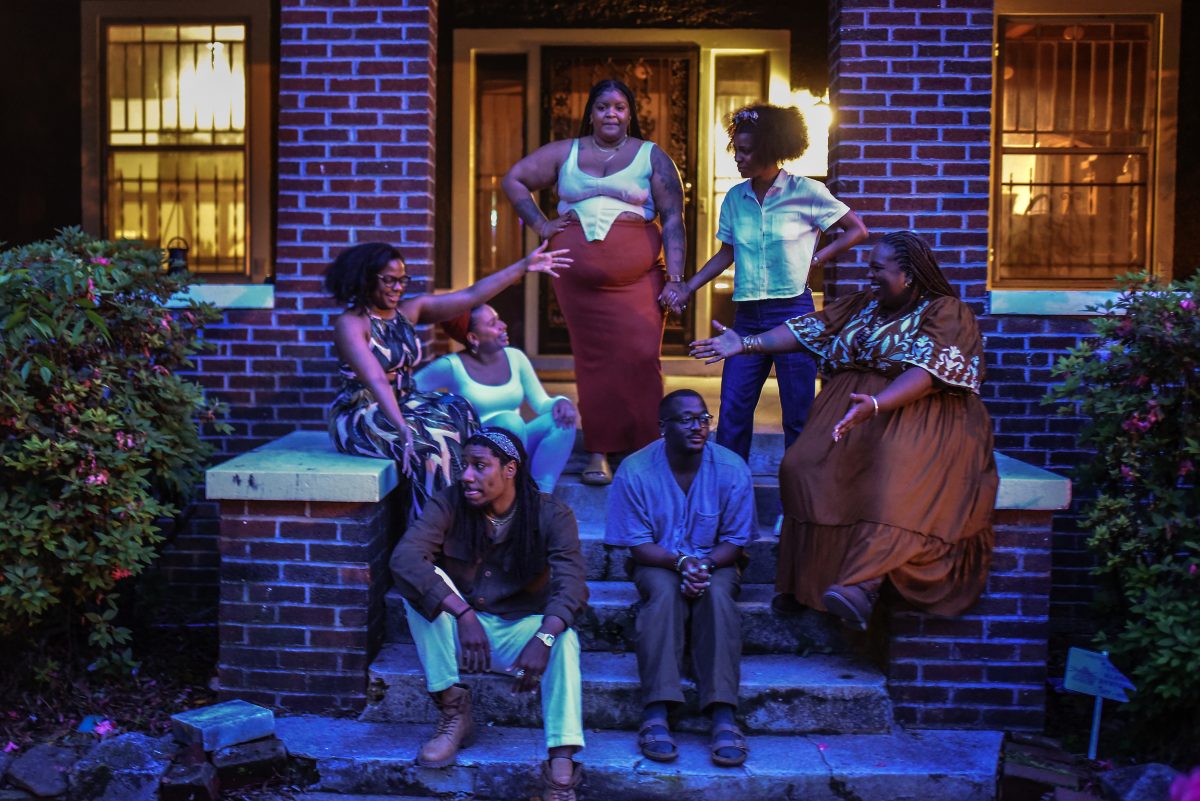A year ago, the Black artist and nonprofit leader Victoria Jones captured the city’s attention with her plans for a $50+ million development meant to bring hope, revitalization and wealth to a long-disinvested Black neighborhood.
She and her partners said they would transform a vacant Lamar Avenue tower into apartments, office space and retail. The Orange Mound project earned her a “Memphian of the Year” honor from Memphis magazine and The New York Times published a glowing write-up of the development. But with the attention came a massive amount of anxiety and fear of failure. At times last winter, she considered killing herself.
With the help of friends, sobriety and therapy, Jones is now in a healthier mental place. The fear isn’t gone, but she’s handling it better. She’s realized it will be okay if she fails. And now, she wants to pass along what she’s learned.
If you or someone you know is struggling with suicidal thoughts, call the National Suicide Prevention Lifeline at 1-800-273-TALK (8255). Find mental health resources for people of color here and additional resources here. — Jacob Steimer
Victoria Jones: I gotta talk about this out loud so I’m not pretending to be impenetrable.
In the production of perseverance and strength, I’ve tried to act like hurting and fear don’t exist in this journey. And that isn’t serving anybody. I’ve leaned into and leaned on the Black Girl Magic thing. I’ve romanticized struggle because it made some of the painful moments make more sense.
But I needed permission to not be strong and not persevere and just fall apart. If I had tried to just persevere, I’d still be in a really bad place. I want folks — especially Black women — to have permission to just fall apart.
Growing up, my folks were in the military, so we moved every other year. The one thing that was consistent my entire life was my family.
In mid-May of last year, my parents moved, and then my sister moved and then my little brother. For the first time in my life, I couldn’t hop in my car and go see my momma.
Then in late May, we changed [our nonprofit’s name] from The CLTV to Tone and announced the tower project.
What’s the latest on the tower?
Jones and the rest of the development team have made significant progress since announcing the project a year ago. A development team is in place, and initial designs and financial models are completed. Now comes refining those designs and projections, getting companies and nonprofits to commit to the project, and raising more money from philanthropists. The team still intends to start construction by the end of 2023. A new goal of Jones’ is to make sure the project provides mental health services to the surrounding community.
There was an intense anxiety around like, “Will people receive this?”
When the first story, by Elle Perry, hit and it was loved on and shared and re-shared, there was some intense excitement for, like, three days. Everybody pulled their cars into one of the warehouses; music was going; we were really celebrating.
But a couple articles later, it started getting scary. We were encouraging people to hope for this tower but then there’s this immense pressure to make it happen.
After, like, four years of sobriety, I started drinking, convincing myself it was celebratory drinking.
As that excitement begins to fade and anxiety continues to grow, it becomes a lot easier to rely on drinking in a completely different way.
Anxiety is just a constant state of being for me at this point. I was diagnosed with bipolar disorder when I came out of college. And so I’m just riding that anxiety like it’s a normal thing. But then The New York Times article came out in November, and it was strictly anxiety, no excitement, no joy.
I was visiting my parents in Florida. My mom and sister and I were riding around this little suburb outside of Orlando for an hour and a half, looking for copies of The New York Times.
It’s late, and we’re tired, and I’m like, “Why aren’t you celebrating me?!”
They were celebrating me, but they couldn’t feel it enough for me to feel it.
While I was in Florida, I was sober. Then I got home, and between Christmas and Thanksgiving, I had these tough few weeks. It’s dark, and it’s cold, and I’m drinking every day. And it’s just, like, all the things.
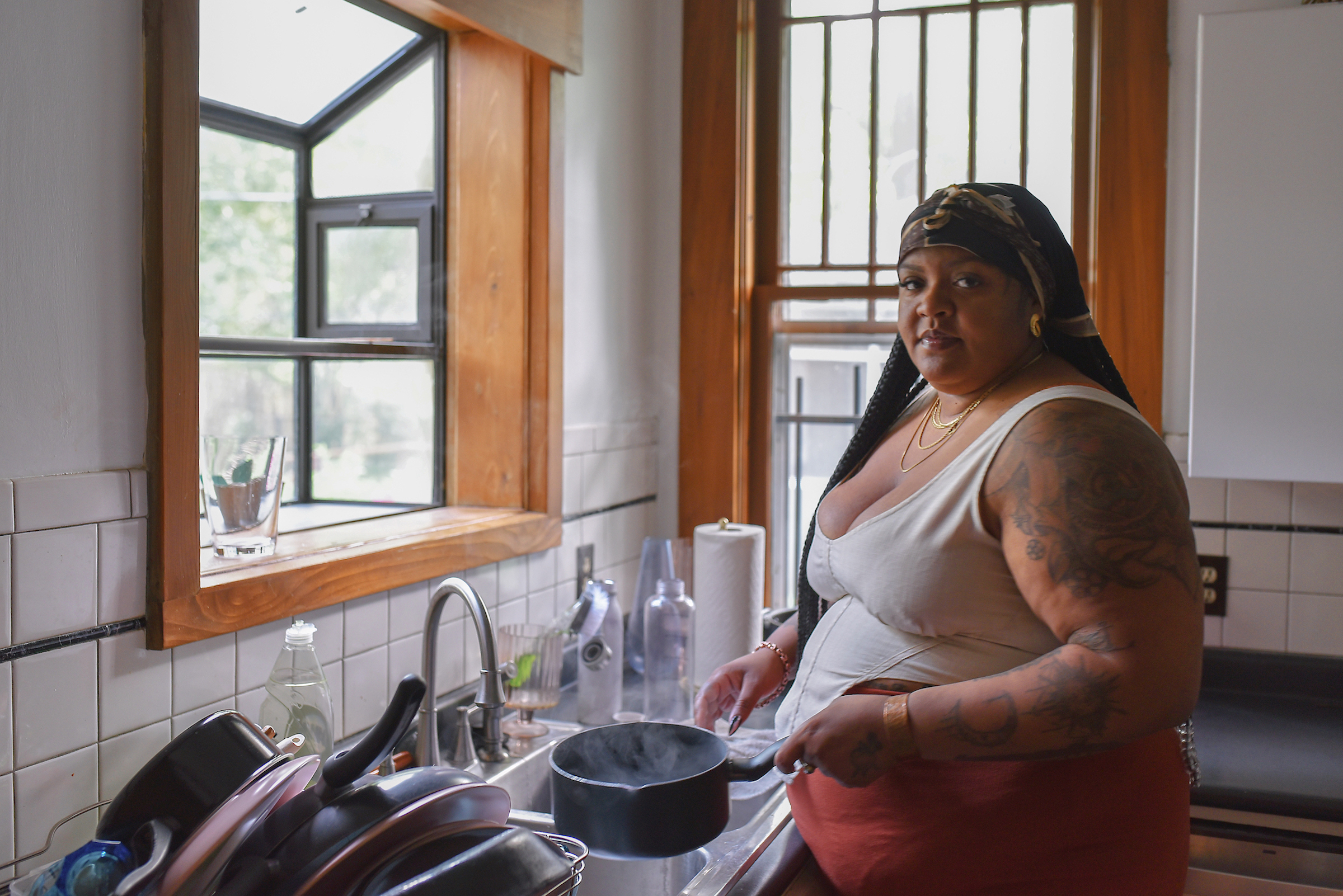
Dealing with bipolar disorder, it’s always on my back. And I know there are these routines and practices I can invest in that will keep it in the rearview. I watched it get closer, closer, and closer. Then when the sun literally stopped coming out, it caught me completely and took a really, really, really good grasp on me.
I tell myself these things, when it is a bit rockier, about my worthiness or lack thereof: I have to do certain things to get love or to be worthy of relationship and community. I didn’t have many, if any, relationships that existed completely outside of work. All my closest friends work here at Tone. So — as far as it was from the truth — it was easy to convince myself that nobody loved me just because they wanted to.
One evening, there was a program here at the Tone gallery, and I had been drinking. And I remember walking in and thinking to myself, “If I die, it would not be me that they mourn, it’d be this project.” And I remember being devastated by that.
I was angry at everybody because I had convinced myself that the only way I’m worthy of love is if I can do really great work and be the strongest and be the toughest.
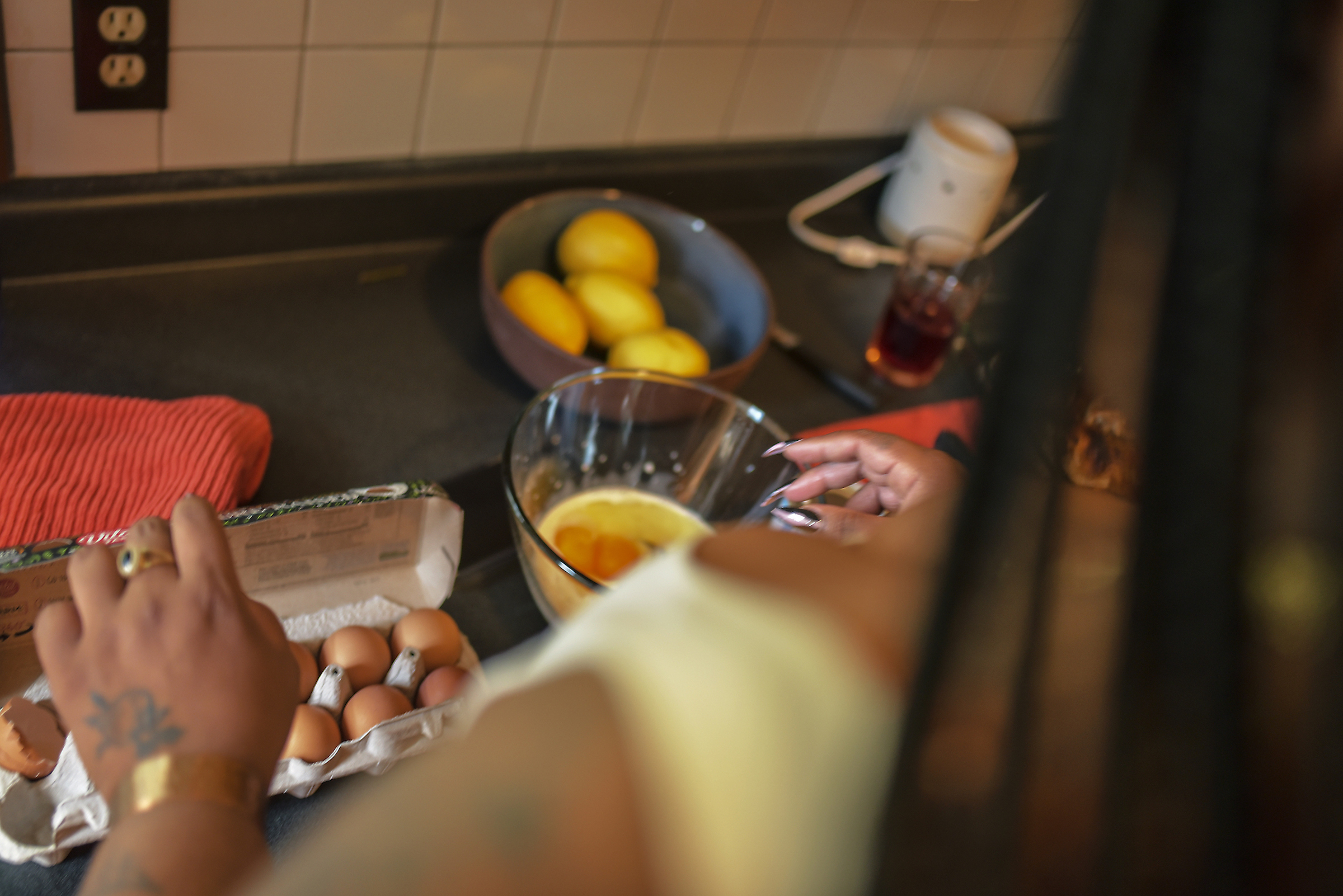
And it’s not because people don’t love me — my brain and I are coming up with fantastical narratives. Everything about my body chemistry is like, “You are alone, and this shit sucks.”
There were day-to-day contemplations about suicide.
I was like, “I don’t know how to get out of this; I have no idea how to shake this.”
When I am drinking, the bottom is taken out. I can get mood swings if I’m sober, and depression still exists. But there’s a bottom.
When I’m drinking, I can fall forever.
And what’s becoming more clear is drinking is also a self-sabotage mechanism for me.
I used to play basketball when I was younger, and I’m competitive to my core. One time, we were about to have to race different teammates. I remember pretending that I was hurt because the person I was up against might win. I was like, “I’m not running a race if I don’t know if I’m gonna win.”
For the first time in my career, I had come upon a goal that I believed I could do but I don’t know I can. It was terrifying.
The worst day came right after I moved houses that winter and was on the tail end of all the stress that comes from moving. I had told myself I was done drinking. But I had had a shit day; I was feeling miserable because I was drunk and lonely and felt like I had crumbled into the smallest version of myself.
My assistant director at Tone, who’s also my closest friend, who I thought I had pushed away, showed up.
I’m laying down in my bed and I got a call, and he’s like “I’m outside.” It was like, “Oh wait. So I’m not by myself?”
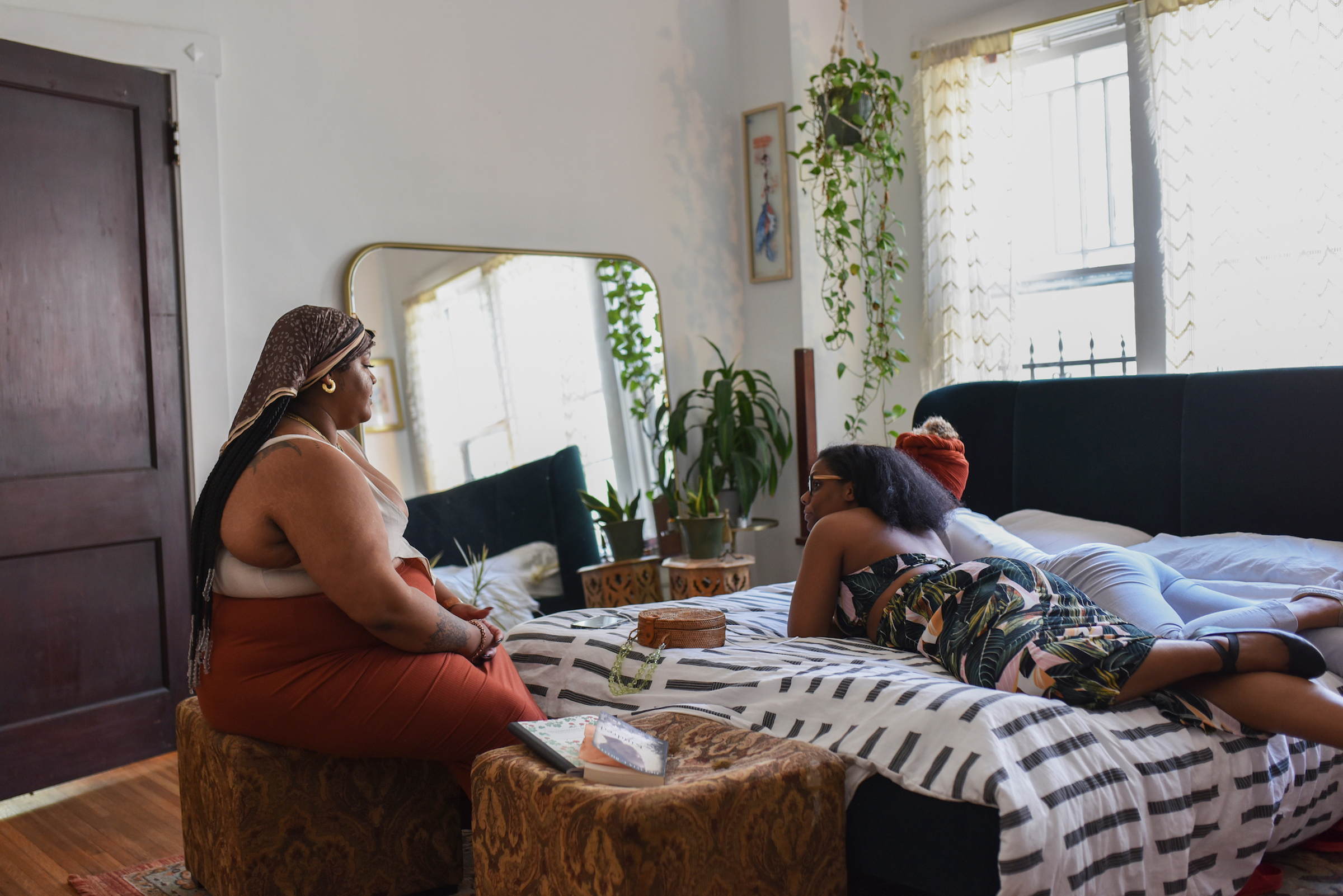
That was the worst night, but it also led to hope.
From there, my therapist was like, you need to make some friends. She said, “Low hanging fruit: Who wants to hang out? Hit them up and go hang out.”
Historic Clayborn Temple executive director Anasa Troutman has pulled other Black women into a community. And I was not being asked to do anything to be part of it. I was not being asked to be smart or thoughtful — just to be there, to watch a movie or eat food or crack jokes.
I felt like — for the first time in a long time — I was being given permission to just be human.
I started trusting them to support me when bad things happen.
These women tell me often that I don’t have to do anything for them to love me. It used to be so hard for me to hear the phrase “if the project doesn’t work …,” but letting them speak that and follow it up with “we will love you,” was a lot. They’re going to be here either way, and I am allowed to fail.
I can fail and still be worthy of love.
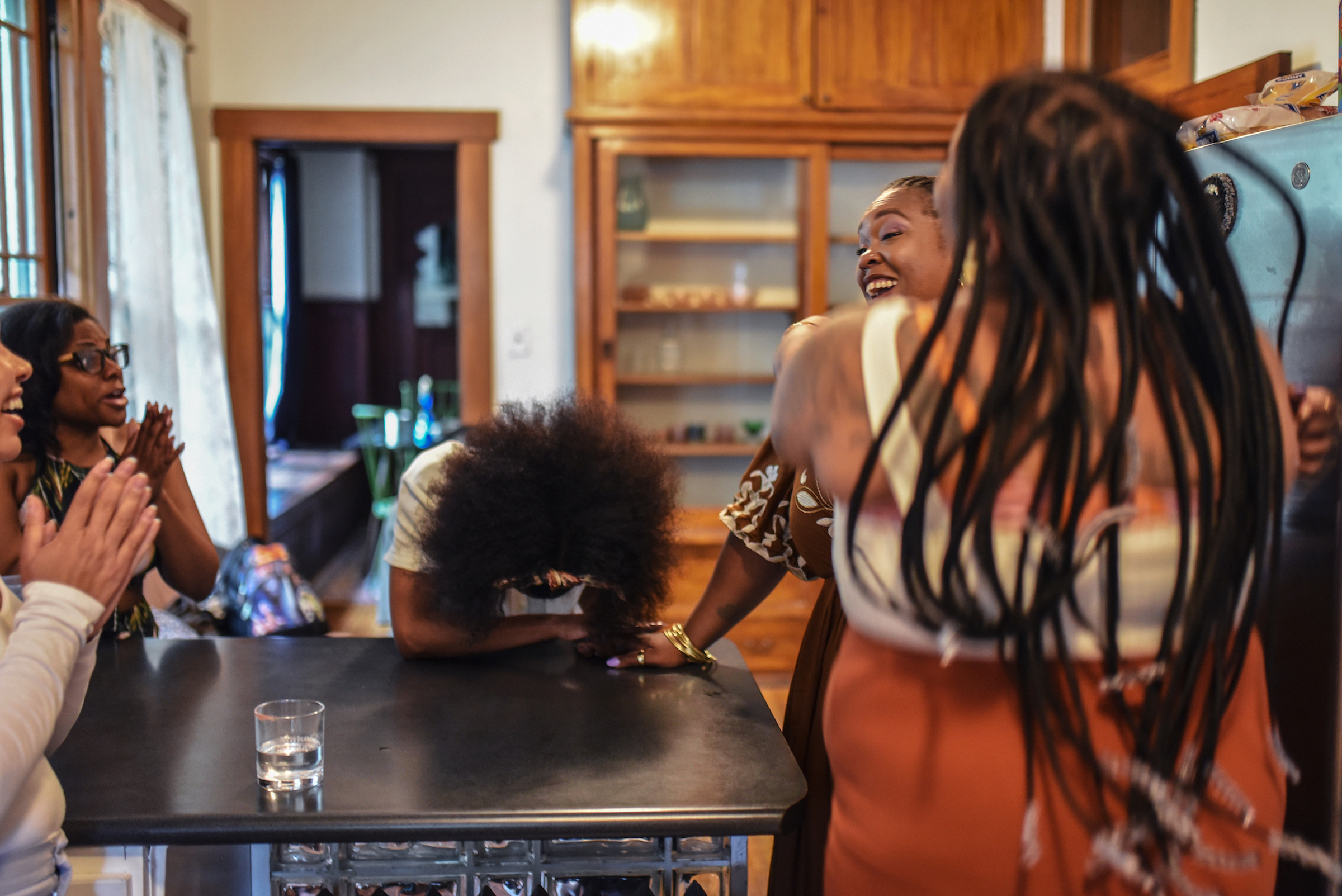
The national helpline for individuals facing substance use disorders is 1-800-662-HELP (4357).
And now I’m not drinking. But I had to care about what happened to me to stop drinking. When you’re around people who are telling you you’re worthy of love and who are actively loving on you, it’s easier to be like, “Maybe I should be nice to myself.”
I don’t think we’re supposed to be as individualistic as we are. I sometimes feel the desire to be this “self-made,” “independent” woman, but that would require me to be alone, and that shit is for the birds.
Jacob Steimer is a corps member with Report for America, a national service program that places journalists in local newsrooms. Email him at Jacob.Steimer@mlk50.com
This story is brought to you by MLK50: Justice Through Journalism, a nonprofit newsroom focused on poverty, power and policy in Memphis. Support independent journalism by making a tax-deductible donation today. MLK50 is also supported by these generous donors.
